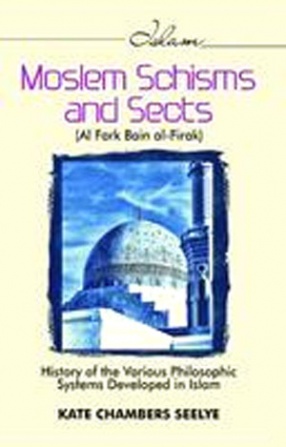This astonishing overview of the history of the origins of Christianity has an extra edge over other scholarly works done in this genre. The author depicts Jesus as a man, but not God, and rejected the miracles of the Gospel. He believes that by humanizing Jesus, he restores to him a greater dignity. Jesus has been depicted as a Galilean who was transformed from a Jew to a Christian, and Christianity that emerged was free from any Jewish influences. The book is largely based on the Gospel of John.
Vol. 1 portrays the sublime personality of the Founder – through His infancy, youth, education, the order of thought, sayings, disciples, preaching, etc., as a gifted itinerant preacher thus extending to the first beginnings of Christianity. Vol. 2 presents a continuation, in some sort, of the Life of Jesus – Formation of Beliefs relative to the Resurrection of Jesus, Decent of the Holy Spirit, and goes further treating the Apostles and their immediate disciples, or rather, of the revolutions which took place in religious thought of Christianity, ending with the general progress & future of Missions. Vol. 3 discusses in seriatim the different epistles which bear the name of St. Paul, in other words, profess to be his works. Vol. 4 contains the end of the life of Paul, the arrival of Peter at Rome, the occurrences in Judea, the persecutions of Nero, the Apostles in Asia, the Apocalypse, the taking of Jerusalem, the compilation of synoptic Gospels. All in all, it showcases a strange play of that grand unconscious artist who seems to preside over the apparent caprices of history, Jesus and Nero, the Christ and the Antichrist, opposed and facing each other. Vol. 5 covers the compilation of the Gospels — which is next to the life of Jesus — the cardinal chapter of the history of Christian origins, the relations of Christianity with the Roman Empire, the first heresies, the disappearance of the last immediate disciples of Jesus, the gradual separation of the Church and the Synagogue, the progress of the ecclesistical hierarchy, the substitution of the presbytery for the primitive community, and the coming in with Trajan of a sort of golden age for the civil society. Vol. 6 witnesses the re-building of Jerusalem, the tolerance of Hadrian–the first apologists, the Johannine writings, the beginning of a system of Christian Philosophy, the forged Apostolical writings–the Christian Bible, the commencement of Gnosticism, the Talmud, Antoninus Pius, the Christians and public opinion, the Sects at Rome, the party of St. Paul drifting by exaggeration to Marcion, ancient Christianity running into a coarser Millenarism and Montanism. Thus, it is certain that at the death of Antoninus, the Christian religion had become a complete religion, having all its sacred books, all its grand legends, all its dogmas, the essential parts of its liturgies; and in the eyes of most of its adherents, it was a religion standing by itself. Vol. 7 closes the series by exhibiting the last phase of development of the Church during the reign of Marcus Aurelius, and the parallel picture of the efforts of philosophy to improve the civil society. In crux, it ends with presenting the status of Christianity — its dogmas, worship & discipline, manners, the reasons for its victory; and the Christian Empire at the end of the 2nd century, which, in the truest sense, belongs to the origins of Christianity.
This enlightening presentation lays down an incredible foundation of the true facts, thereby summarizing the intellectual and social background of Christianity. It covers subjects like History, Missions, Philosophy, Religion, and presents a different biographical sketch of Jesus as human. This unequalled work fully presents itself for the Undergraduate and Postgraduate Students of History, Researchers, Christian Religious Scholars, Historians, Educationalists, Christian Laity, Church Clergies, and also for those who aspires to understand the history from a new angle.








There are no reviews yet.